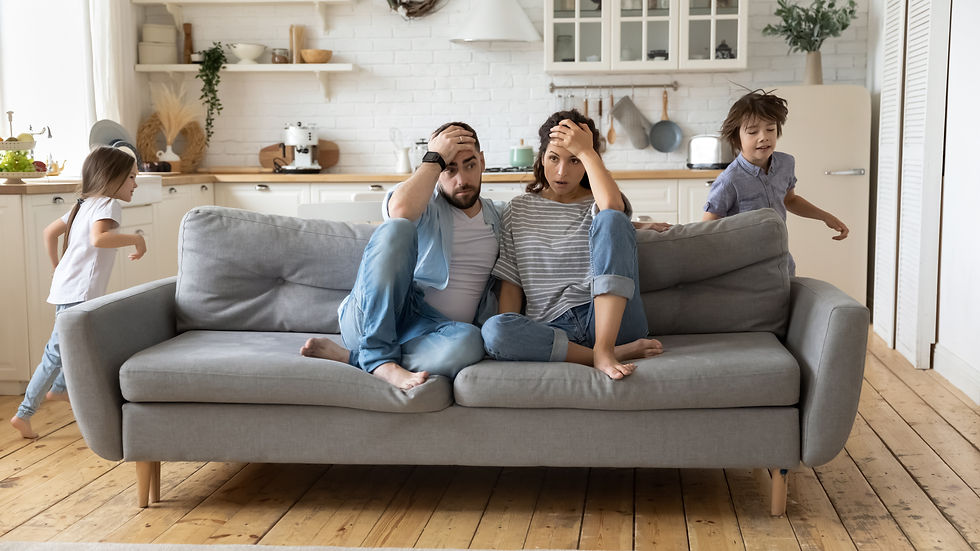Problem-Solving for Tired Parents and Providers
- nanci j bradley
- Sep 3, 2021
- 2 min read
Updated: Sep 26, 2023

Let's admit it now. Problem-solving with very young children doesn't always work. Like at the end of the birthday party, or the beginning of a head cold. Or both. Even so, it's worth the effort in the long run.

Here's my condensed version of problem-solving 101 for tired and frustrated parents and providers of all kinds.
When they call for your help and you wonder whether they really need it, answer the children kindly, but resist the urge to run to their rescue. Take ownership of your time. This holds nothing but advantages unless they're in real physical danger or fighting and yelling. This will help kids learn to be more patient and give them a chance to try things out on their own.
It's important to talk them through their frustration so they know that you're on their side. Your job is to teach them and help them to learn on their own, not to rescue them or ignore them.
So when a child asks you for help and you wish they’d try and figure it out themselves, instead of saying no or dropping what you're doing to run and help, try saying this:
OK, I'll help you with that puzzle (or that shoe) as soon as I'm done emptying the dishwasher (or changing baby's diaper) or whatever. It should take me about 5 minutes and then I’ll be there. Ignore any whining and follow through with what you said you'd do, no more and no less.

This works because kids feel supported and you stay assertive. You claim your own feelings by saying, "I need time", using an "I" message to your best advantage. Your kids may figure it before you get over to help. Then you both win!

Because I care for so many small children all at once, I’m pretty much always busy but if not, I improvise. There's a book display that always needs re-arranging and I'm not afraid to take the time to do it. That is if and when I feel the child may be better off without my help in this particular instance.
This simple method works to buy a lot more time in the long run. They get used to trying things on their own before asking for help from you. It does require persistence as well as an even, steady tone of voice but once you get the hang of it you'll love the effect it has on your kids.
Learning to solve their own individual problems will set them up for learning to solve problems with others.




Comments